Blackouts, surges and brownouts can all wreak havoc on your electronics. A solid battery backup/uninterruptible power supply (UPS) will keep your gear safe from surges, condition the power as it comes in, and ensure your machine keeps running until you can turn it off safely in case of a power outage. This week, we’re looking at five of the best, based on your nominations.
Shopping around for a UPS device can save you money, but shop wisely; an imported device may well cause your more problems than it solves, given the need for an Australian power adaptor and varying voltages.
Cyberpower 1350
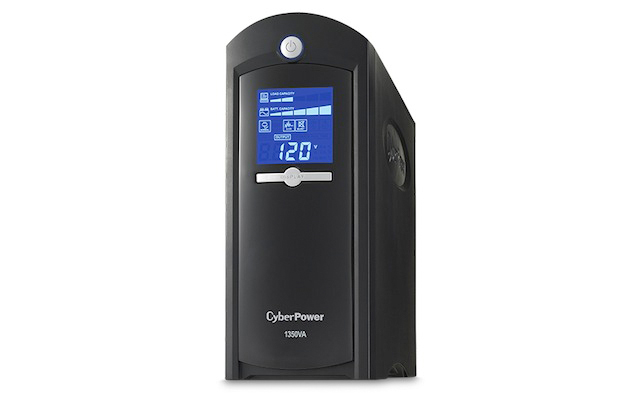
The Cyberpower 1350 (specifically, the CP1350AVRLCD) is a mini-tower 810 watts/1350 VA UPS that features a helpful LCD display on the front to give you visual indications of line condition, the device’s health, battery charge and load capacity. It is well designed for home theatre setups and computer workstations, and it’s slim enough to fit behind or under a desk. It also features USB and Serial connectivity, and protection for ethernet and telephone lines. The included software will shut your devices down gracefully if there’s an outage.
APC Smart-UPS 1500
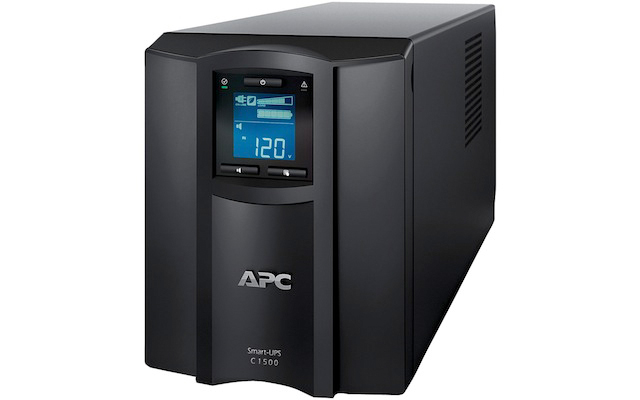
APC is a juggernaut in the UPS market, with three separate devices making our top 5. The Smart-UPS 1500 comes in two flavours; the LCD-packed, home-user friendly SMC1500, and the slightly older but beefier SMT1500. The major difference, as this thread explains is that the SMT1500 has a higher capacity battery that will keep your gear running longer than the SMC1500, which trades a fatter battery for an expansion slot and a better LCD. Both models are 900 watts/1500 VA units and feature remote management features and remote shutdown.
APC Back-UPS 650
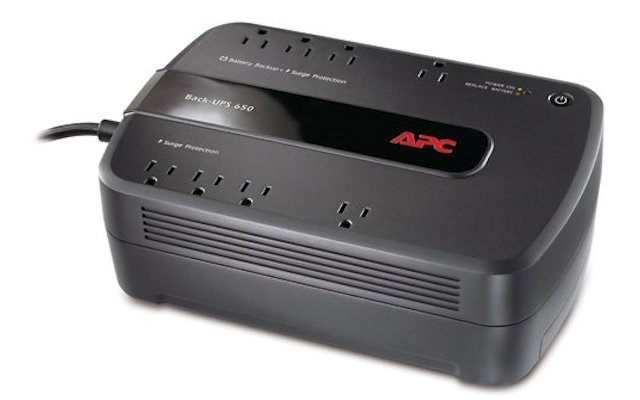
If you’re only interested in protecting one workstation and its equipment, or you just don’t want to spend lots to protect a couple of devices, the APC Back-UPS 650 may be a good option for you. It’s flat and designed more like a thick powerboard with a replaceable battery inside. It’s a 390 watt / 650 VA unit in a package small enough to sit beside your desk or just underneath it. Like other APC models, it packs data line protection for Ethernet, and pairs with the manufacturer-included software that will shut your computers or other devices down in case of an outage.
APC Back-UPS Pro 1000
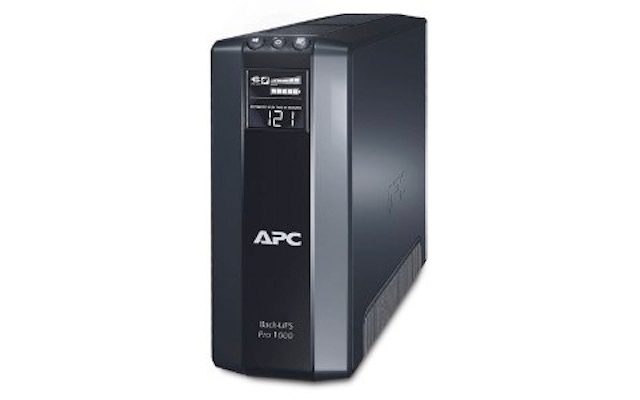
If you need a little more juice for your home office or home entertainment system, the Back-UPS Pro 1000 offers a step up from APC’s flat, power-strip like units to a mini-tower much like the Cyberpower we mentioned earlier (albeit a little less powerful). The Back-Ups Pro 1000 is a 600 Watt/1000 VA UPS that offers data line protection for Ethernet and cable lines, and an LCD display on the front.
Powervar GTS
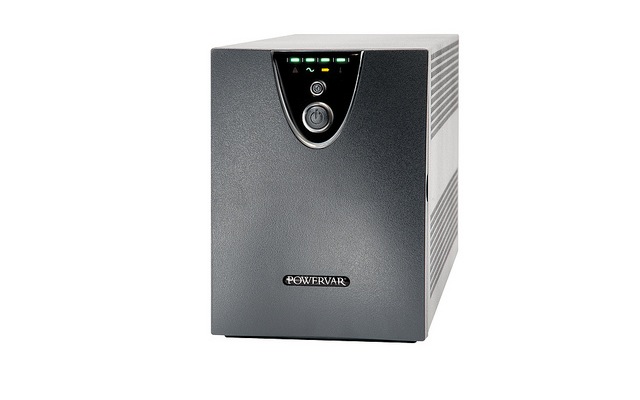
Powervar gear is aimed at businesses rather than consumers, which means it’s somewhat harder to pick one up — you’ll either need to find a sympathetic dealer or buy it second-hand. If you can, it’s a well-regarded brand.
Use a different device for power management? Want to share your experience with one of the nominees? Tell us in the comments.
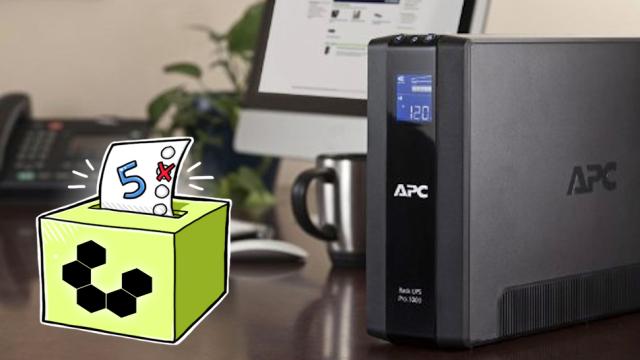
Comments
7 responses to “Five Best Battery Backups/UPS Units”
+1 APC Back-UPS Pro
I’ve got one and it was money well spent… you really can’t beat APC for a great UPS!
Do these devices slow down the ethernet connection at all?
Yes, but not noticeably. I’ve used them with homeplugs for both streaming movies and playing online, and it’s not affected the throughput adversely.
Any chance of indicating the average RRP for these units, so we can see what they’re worth?
Are there any UPS devices that allow you to plug in a small solar panel (eg mounted just inside your window) so that you can also use them as a mini off-grid solar solution for your computer?
Neither solar or the UPS will be able to provide the level of power consumption your PC requires – the idea of a UPS is not to allow you to keep working, but rather, to give you time to gracefully save your work, and shut down the PC.
The ancillary benefit is that for very short power drops out, your PC/HTPC doesn’t get damaged by the spike/drop out, and you don’t lose all your work.
Even business UPS systems are only to allow for a couple of hours max (depending on the capacity of the UPS).
The only exception I’ve seen to that was the GE complex in Richmond which not only has two tiers of UPS’s covering an entire level, but also a battery (excuse the pun) of diesel generators to power them.
At my last job, we had a UPS rated to keep about half the office up and running for 24 hours in the event of power loss (admittedly only about 5 workstations and some networking gear)
Given how much that thing cost and that all our work was internet-based and hosted remotely, almost every other solution would be cheaper and almost as efficient.